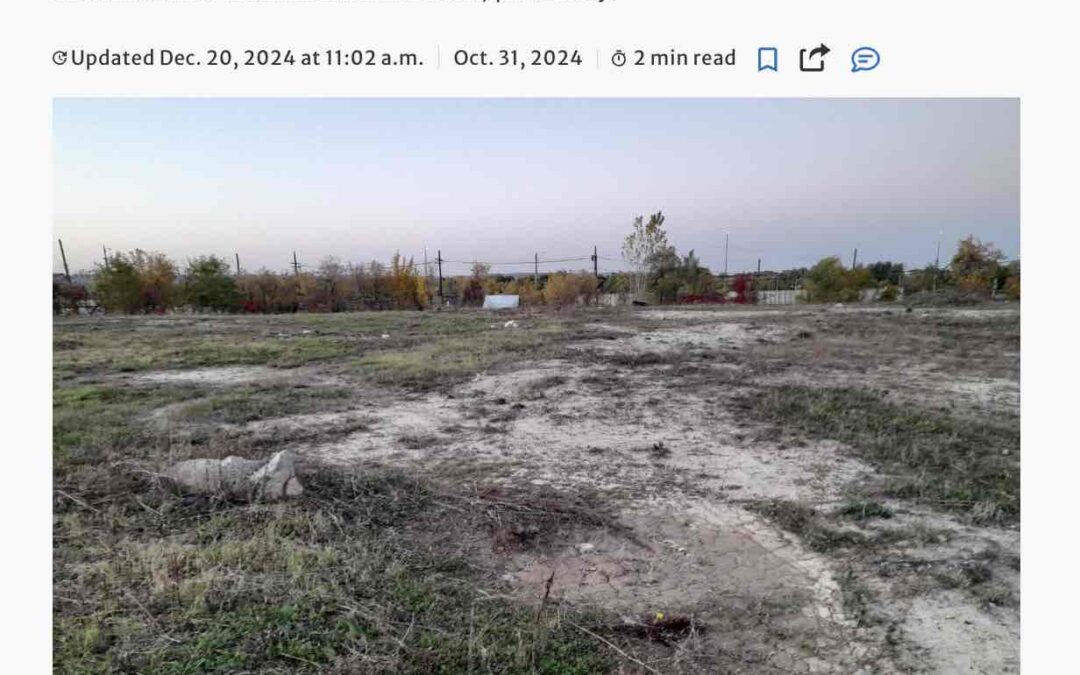MICROSHELTERS ON THEIR WAY TO BARTON WEST SITE
Cover Picture credit: Teviah Moro – The Hamilton Spectator
The providers of 40 prefabricated “MicroShelters” for a city effort to shield as many as 80 homeless people from the elements expect the mini-structures to arrive in Hamilton from south of the border in December.
“It will be 100 times better than a tent,” Denis Fourcaudot, co-founder of MicroShelters Inc., said about the eight-by-20-foot steel cabins to be situated on the city-owned Barton Street West land selected for the temporary project.
But the shelters — which have insulation, lockable doors, windows, electrical outlets, heating and air conditioning — aren’t meant to be permanent lodging, fellow co-founder Jeff Cooper emphasized.
The whole objective for us is to transition people off the streets into the MicroShelters and then move into a shelter or into affordable housing,” said Cooper, noting he grew up in the North End not far from the Barton site.
That’s what city officials say they hope in pursuing the plan for the cabins, which, along with 192 temporary indoor shelter beds, is an $18.3-million effort that’s pinned on shoring up affordable and supportive housing in Hamilton.
With the MicroShelters on the way, the city is firming up an agreement with Good Shepherd as a potential lead for the outdoor-shelter project.
In September, council approved the boost in shelter beds along with the outdoor project, which is a roughly $7-million initiative that is to provide “wraparound” services including 24-7 staffing, security, washrooms and showers.
Roughly 300 of 1,600 people who are homeless in Hamilton live outside, including encampments in public spaces under the auspices of a city protocol that lays out spatial restrictions and allows for clusters of up to five tents.
Tents in parks have been a growing source of community tension, with residents and businesses near them complaining to city officials about garbage, drug use, fires and theft.
The city didn’t respond to The Spectator’s request for comment by deadline Wednesday, including how much it will pay MicroShelters Inc. for the mini-shelters.
Cooper, a former RCMP superintendent who lives in Brantford, and Fourcaudot, a Burlington resident who has worked with social-housing providers, declined to specify a dollar amount, deferring to the city.
The United States-sourced structures have foldable beds, tables and chairs. A wall that splits them in half allows for occupants on both sides.
The city has said the MicroShelters will be prioritized for couples and people with pets. A page on the city’s website provides information about the project.
Adam Klein, who is among a clutch of people living outside at the mucky Barton West site, welcomed the mini-cabin concept as winter approaches.
“They’re for camping, not living in,” said Klein of the tents he and others have pitched on the former industrial and residential land between Caroline, Hess and Stuart streets. The 48-year-old said the mini-cabin concept, notably the prospect of a lockable door, promised to help him stabilize as he searches for housing.
As long as the site is “monitored,” said Klein, emphasizing the importance of security. “There’s a ton of funny business going on around here.”
Separately, the Hamilton Alliance for Tiny Shelters (HATS), a local non-profit, is working with the city to establish a community of 20 to 25 wood cabins on a yet-to-be announced site.
“We have 15 units ready to go,” Dan Bednis, a board member with the volunteer-powered group, said Wednesday.
In October 2023, in part due to neighbourhood pushback, HATS withdrew from a site at Strachan Linear Park not from the entrance to Bayfront Park in the North End.
HATS has “gained valuable learnings” from that experience and plans to reach out to engage with local residents “prior to committing to a site,” Bednis said.

MicroShelters: Affordable, Sustainable Housing Solutions
Welcome to MicroShelters, an Indigenous-owned company at the forefront of providing affordable housing options and homelessness solutions across Canada.
Prefab structures are factory made and transported to a permanent or semi-permanent location.
Our Global Modular MicroShelters mission is to revolutionize transitional housing with our innovative tiny homes and temporary housing solutions.



